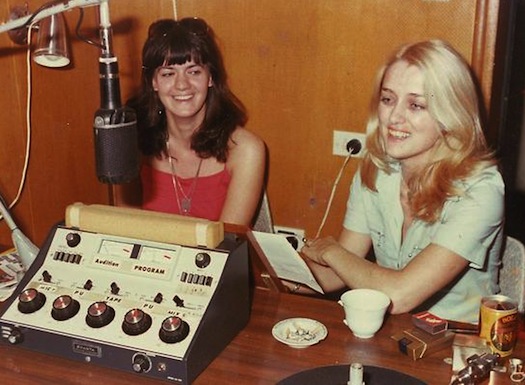During the month of June, SBS Radio is celebrating 40 years as the voice of multicultural Australia.
Established in June 1975 as a trial service tasked with informing Australia’s rapidly growing migrant population about the Governments new healthcare scheme, SBS Radio has since developed into the world’s largest multicultural media organisation with 74 language programs and four music channels producing over 265 hours of original, Australian focused news and information every week.
On the anniversary Communications Minister Malcolm Turnbull says “SBS Radio is a truly unique service, congratulations on 40 years of helping to shape and foster an understanding and appreciation for the many cultures that make up our diverse but united Australia.”
“SBS Radio has had a significant impact on the lives of so many people in the last 40 years,” says SBS Managing Director Michael Ebeid, whose parents listened to the service when they migrated to Australia.
“I remember my own parents listening to the Arabic program, when I was young. For them, as with many migrants, SBS was a trusted place where they could get impartial news and information in a language they were more familiar with, helping them participate in Australian society.
“We are still that trusted voice for the more than four million Australians who speak a language other than English at home. With that figure now double what it was 40 years ago; there is a greater need today for SBS’s services than ever before, which will only increase as Australia continues to grow in cultural complexity.”
SBS Director of Audio Language Content (Radio), Mandi Wicks says:
“Radio is at the heart of SBS, and is the foundation from which we have grown into a modern, multi-platform network. Just two years on from the launch of our new radio schedule and new language programs, we are now delivering news and information to a larger and more diverse community and across more platforms, than at any other point in our history.
“In the last year alone traffic to SBS Radio’s websites, and the number of listeners accessing audio streams via SBS Radio sites and Mobile Apps have experienced significant increases, fuelled by Australia’s fastest growing language communities, such as Arabic, Chinese (Mandarin and Cantonese) and Hindi, alongside our music brand, SBS PopAsia, all of which have more than doubled engagement in that time.
“Our new language programs, such as Dinka and Tigrinya, have also played a key role in this growth, with both regularly ranking in the top 10 most popular language webpages, despite being relatively small communities.”
To mark the anniversary, SBS Radio are celebrating 40 years of a multicultural Australia with specialised content looking back on the news that shaped Australia and the world over the last 40 years.
The station is also asking all Australians to share their hopes, dreams, aspirations or fears for Australia are in the next 40 years via the #in40years hashtag on Twitter, Facebook and Instagram or online at sbs.com.au/40years.
One of the early volunteer broadcasters at SBS was Ivana Bacic-Serdarevic (pictured above), who was a young migrant from the Yugoslavian state of Croatia trying to find her way in her new life in Australia. She arrived in Australia in 1973, two years before the SBS bold experiment was implemented in Australian broadcasting.
“I had a sixth sense, sort of, that I would be living somewhere else not in the country where I was born. I was dreaming about living somewhere faraway and I think Australia was far enough to move and to live,” she said.
On June the 9th, 1975, then immigration minister Al Grassby launched Radio Ethnic Australia with the aim of explaining the new Medibank scheme to migrant groups in different languages. Broadcasting began in seven languages in Sydney on 2EA, and eight on Melbourne’s 3EA, and with the first broadcast in Greek.
Staffed by volunteers, broadcasters came from all walks of life, including Bacic-Serdarevic, who simply wanted to connect with others.
“I started as a volunteer working at 2EA for the Yugoslav group which was the umbrella under which there were four language groups. They were Serbian, Croatian, Macedonian and Slovenian. It’s been 40 years since then and I’m still here. It’s not an experiment any more.”
In a sign of changed times in radio studios, note the panel in the picture above, and the cuppa on the desk plus the full ash tray in the studio.


In 1975 2EA was given access to a studio (Pictured) to do their trial broadcasts.
This was at the production facility of the Christian Broadcasting Association Ltd in Five Dock. In 1979 they were granted their own FM license as 2CBA, now Hope 103.2